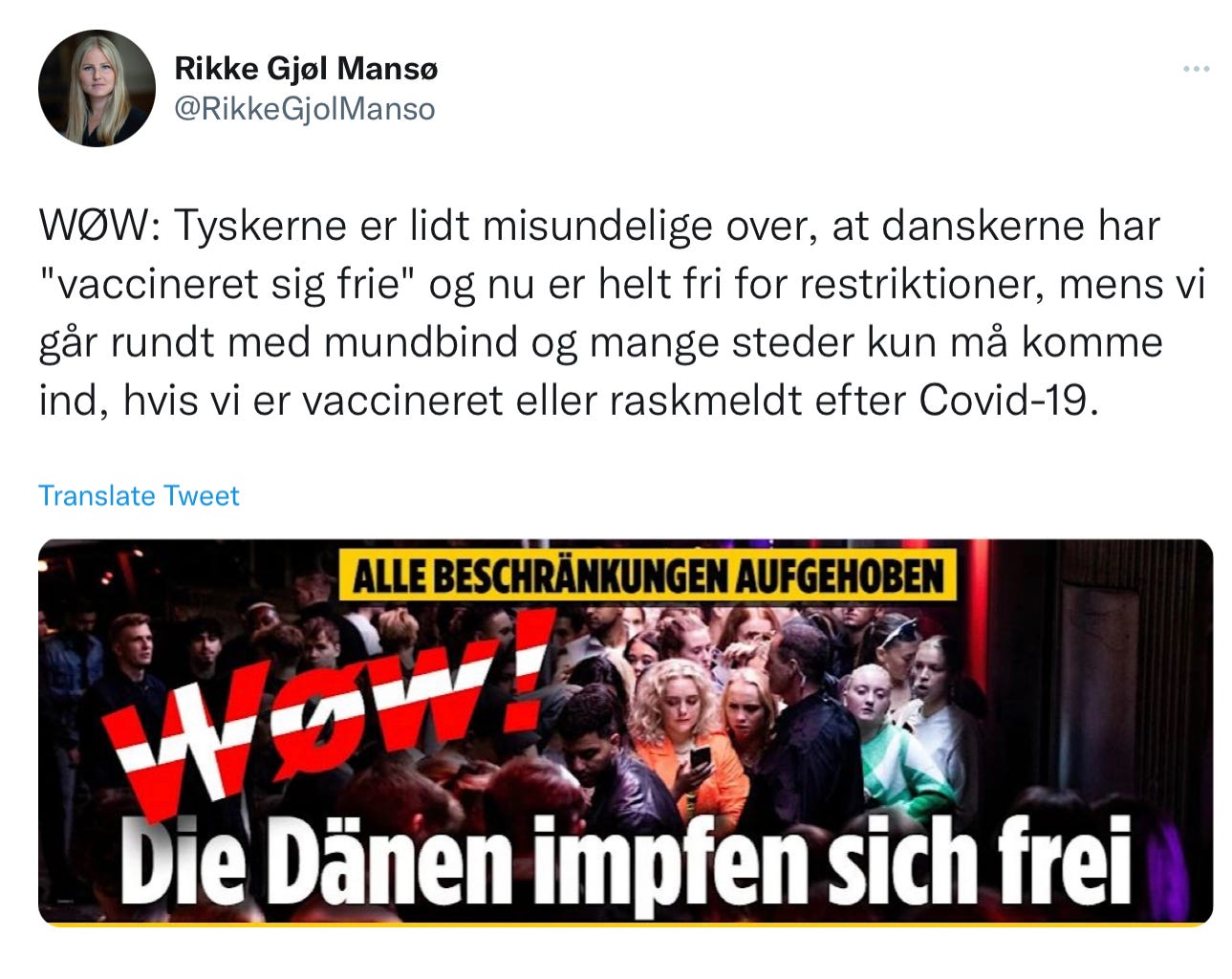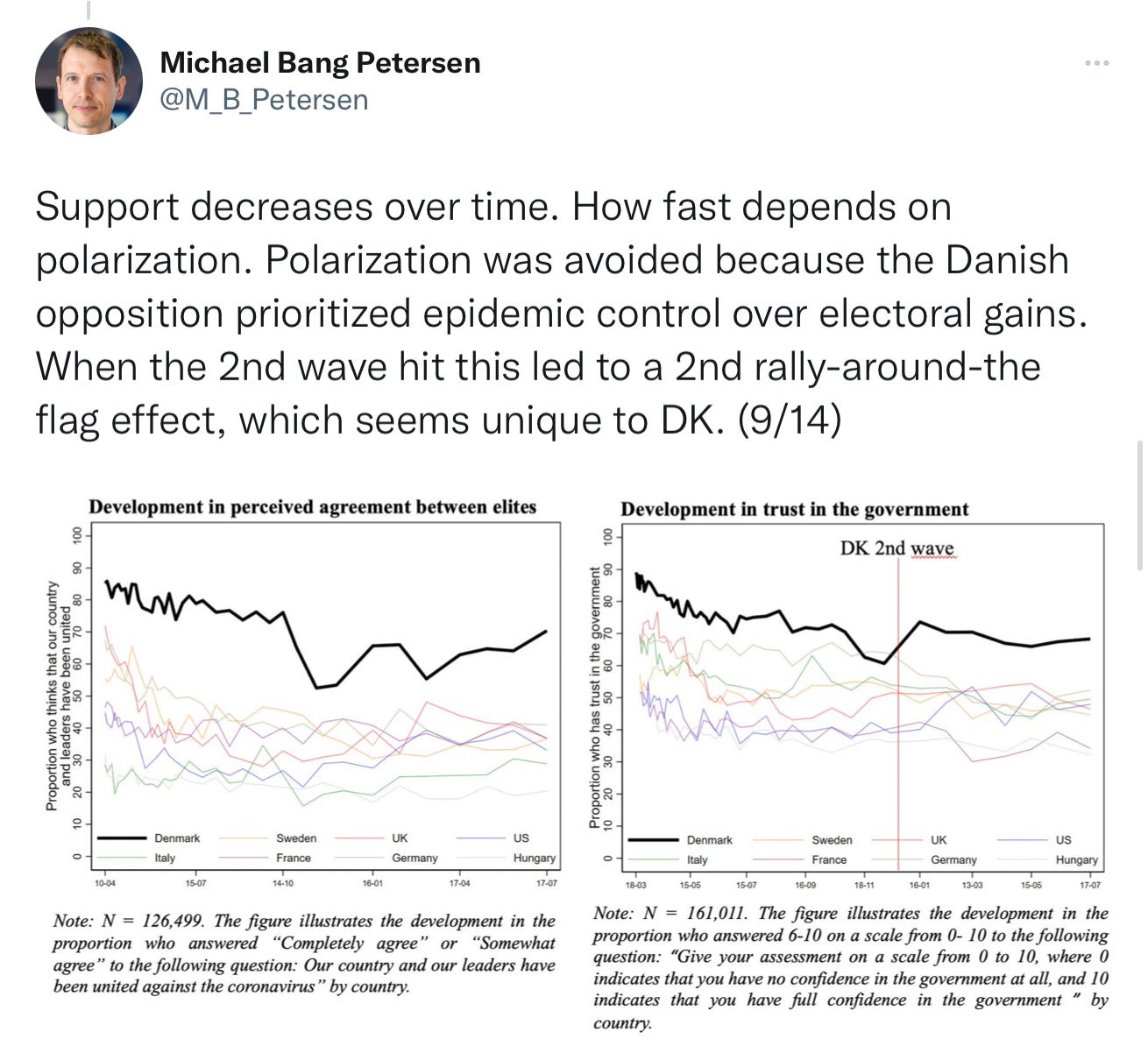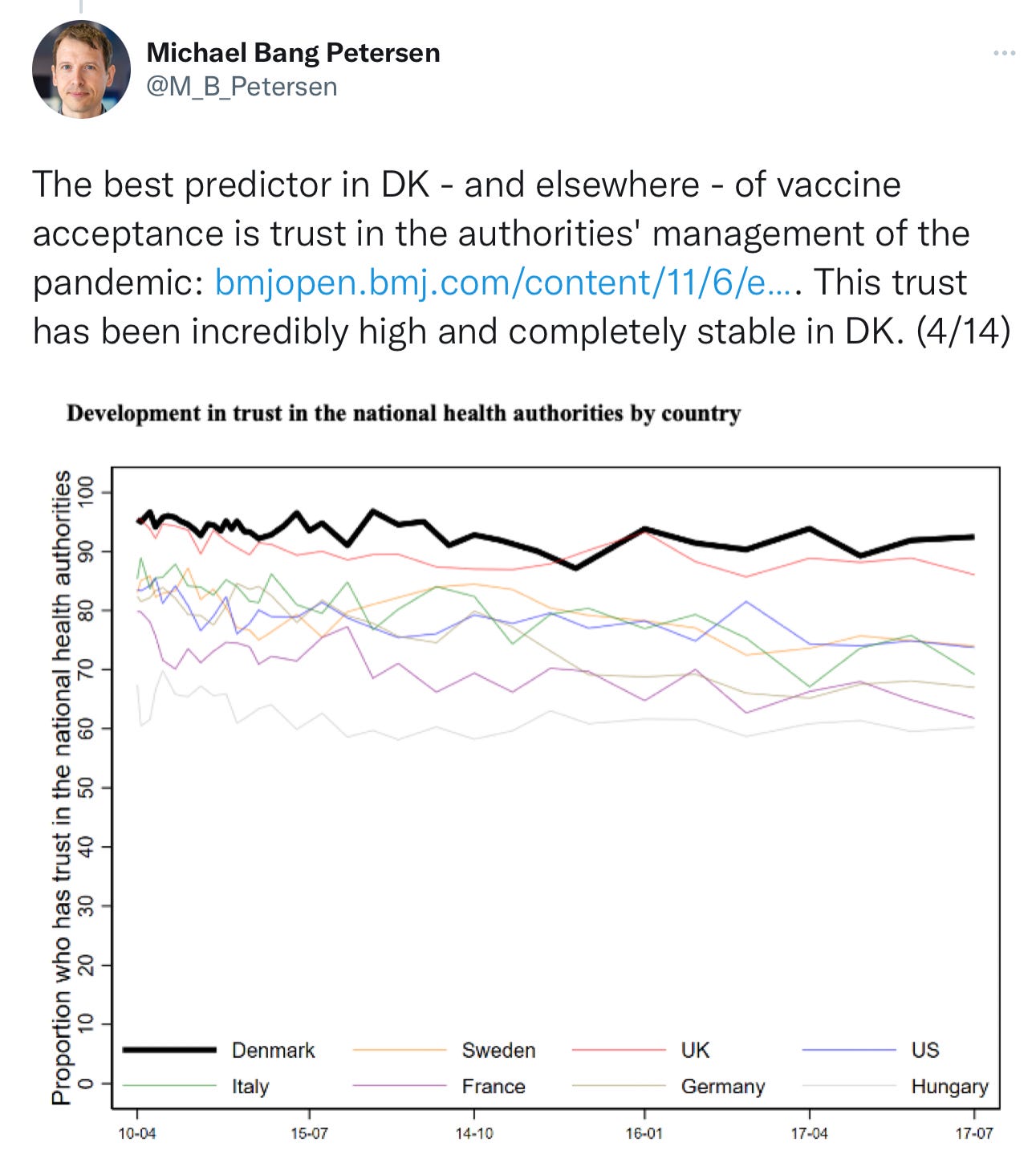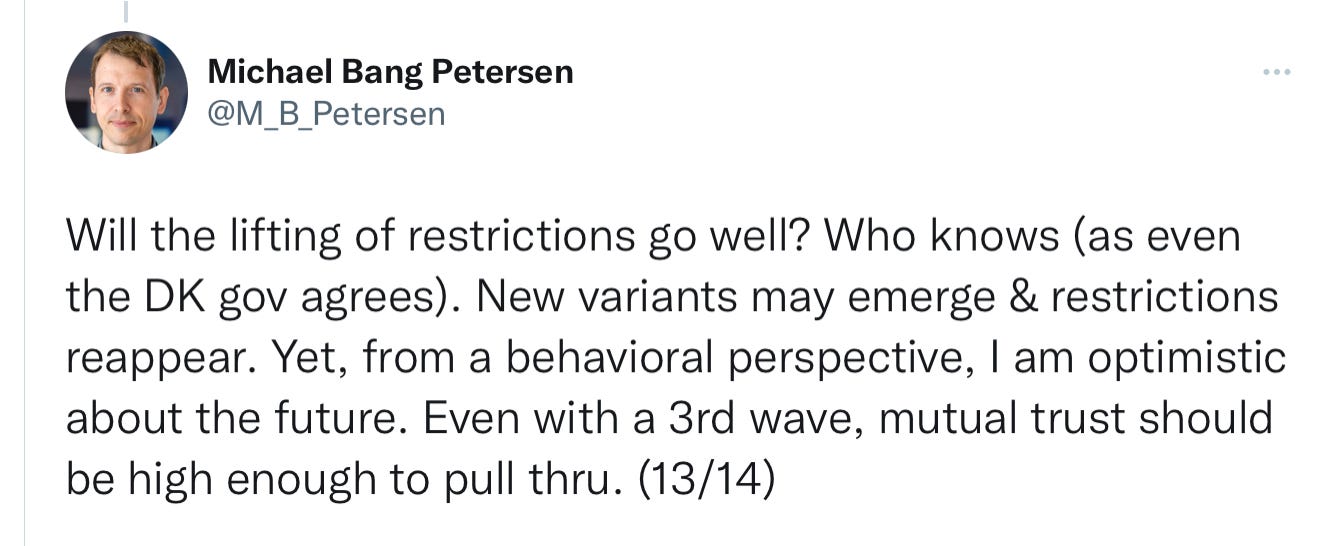No more COVID restrictions in Denmark
Danish authorities still have some tools to battle the pandemic
🇩🇰
There are no more coronavirus restrictions in Denmark. The Danish government no longer designates COVID as a “socially critical” disease (samfundskritisk sygdom). This removes the legal justification needed to implement a wide array of coronavirus restrictions. While the bulk of what restrictions were left were lifted on September 1 the change today effectively makes the last two null and void.
As of today, people going to bars, dance clubs, and discos no longer require a coronapas for entry. As well, coronapas requirements are also lifted on all events with more than 2,000 attendees.
Health Minister Magnus Heunicke called this an important milestone.
“This can only be done because we have come a long way with the vaccination rollout, have strong epidemic control, and because the entire Danish population has made an enormous effort to get here. The special opportunities for imposing restrictions that we have with the Epidemic Act must not be the new normal in society. We continue to monitor the epidemic closely, and if there is a serious development that threatens epidemic control in Denmark, we are prepared to act quickly again.”
While the government has no legal justification anymore to mandate things like assembly bans, mask mandates, and coronapas requirements, it still retains some powers.
COVID is still designated both a farlig sygdom (dangerous disease) and a smitsom sygdom (contagious disease). This means the government still has the power to levy entry restrictions at the border, mandate local closures, do wastewater monitoring, and require municipalities to maintain volunteer isolation facilities, among other powers.
The Agency for Patient Safety (Styrelsen for Patientsikkerhed) also continues to have the ability to order school closures in the event of outbreaks. It can also take measures against individuals like isolation, testing, and hospitalization if required.
It is also important to note that coronapas requirements continue to be mandated for all travel outside of Denmark.
In Germany, DR’s correspondent in Berlin tweeted the reaction there to Denmark having no more COVID restrictions, which in a word was “Wow.” Germany still has an array of restrictions including a mask mandate. It also has lower vaccination rates than Denmark, and while infections fall here, they are rising there.
To designate a disease as being “socially critical” is a political decision. The National Board of Health must make the assessment that the disease is very contagious, can be very deadly, and has the potential to cause serious harm, or permanent injuries. That assessment is then sent to the Danish parliament (the Folketing) and a majority on the parliament’s Epidemic Committee must concur before an executive order making the designation official can be issued.
The head of the HOPE project, which studied how society reacted during the COVID pandemic, Michael Bang Peterson, who advised the government, said today the lack of political division in Denmark was crucial. In an informative Twitter thread, which you can find HERE, Peterson says avoiding political polarization was a major advantage in Denmark.
Peterson says the basis for reopening society is vaccination uptake. In Denmark, having 86% of the eligible population with at least one dose and 96% of those over 50 fully vaccinated provides that foundation.
But the other major factor was social trust. This helped get people onboard when restrictions were introduced and helped get to high vaccination rates.
But he said trust is helped by clear, transparent communication. Peterson notes Denmark and Sweden both traditionally have high levels of social trust, but one saw that trust erode while the other did not. He said this had to do with the different pandemic responses by the Swedish and Danish authorities, including on providing clear communication.
Peterson says the other thing that worked to Denmark’s benefit was the government encouraging society to take action to fight the pandemic as a moral project. He says these can backfire, leading to shaming and conflict, but in Denmark that was extremely rare. Rather, people banded together and followed guidelines to keep themselves and the people around them safe. This allowed for smooth adoption of things like mass testing and the use of vaccine passports, which have been firestorm issues in other countries.
As for what happens now that all the COVID restrictions have been removed…
He says a pandemic can be a severe litmus test for society. Denmark saw protests, heated debates, and some “mistaken decisions” but if things go well in a crisis “it is despite all the things that will inevitably go wrong.”







